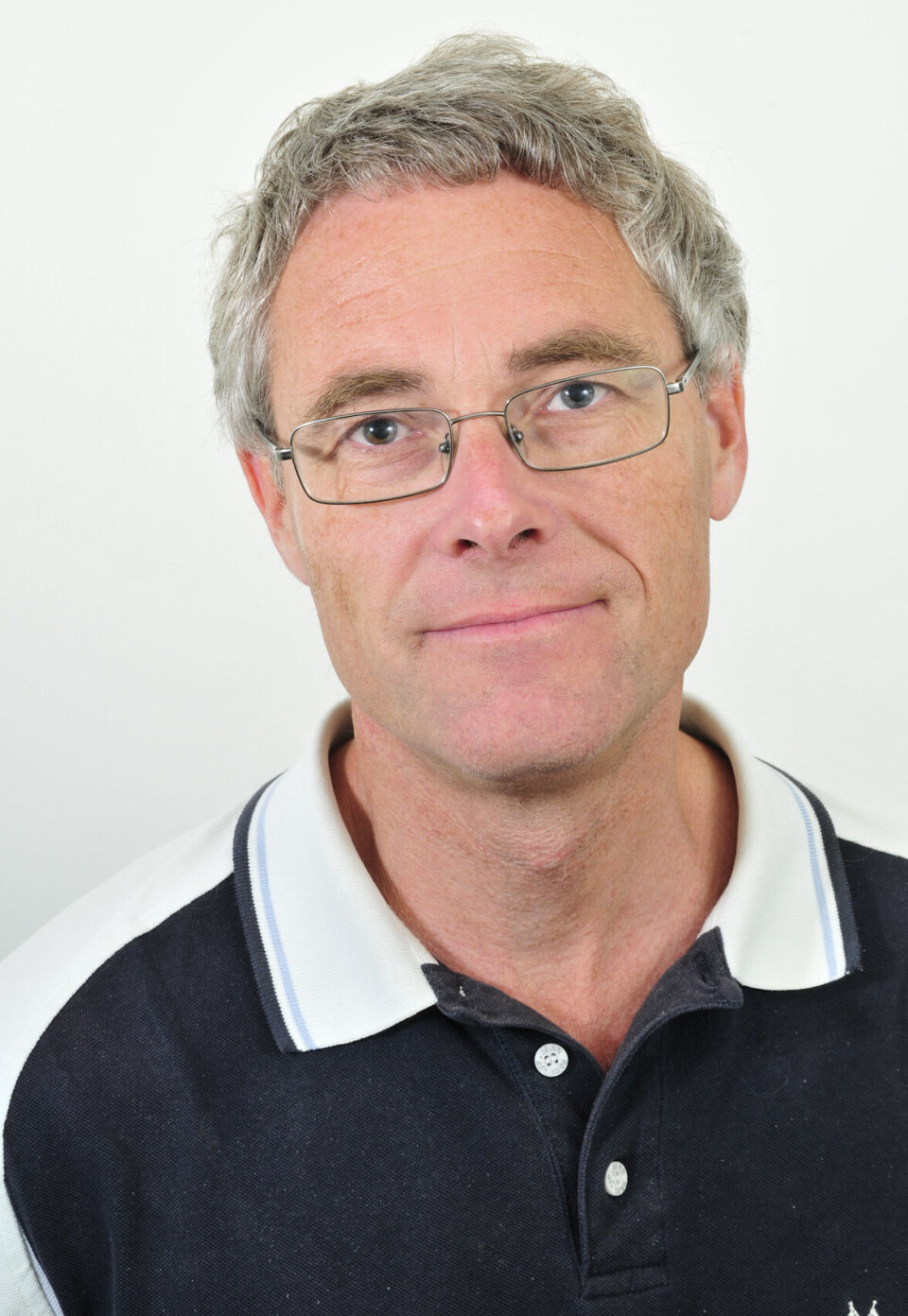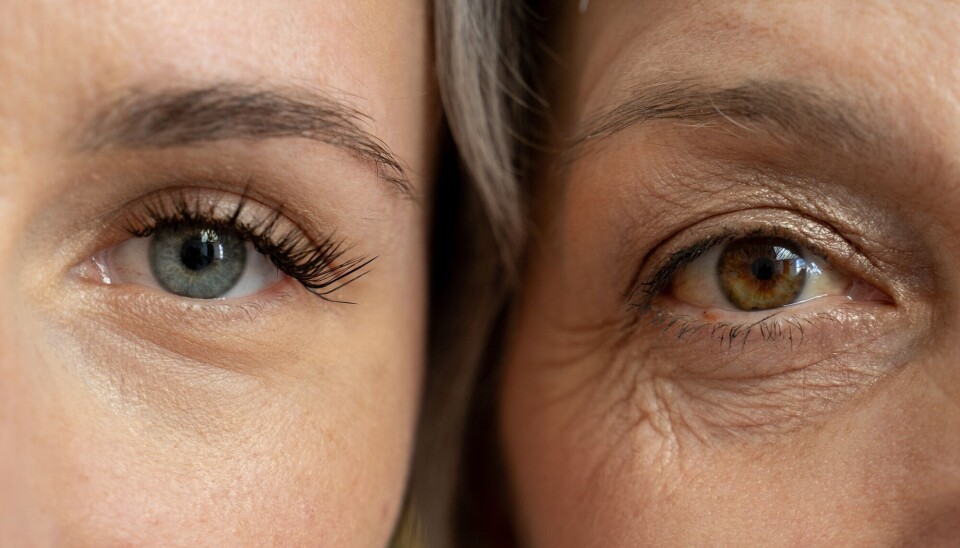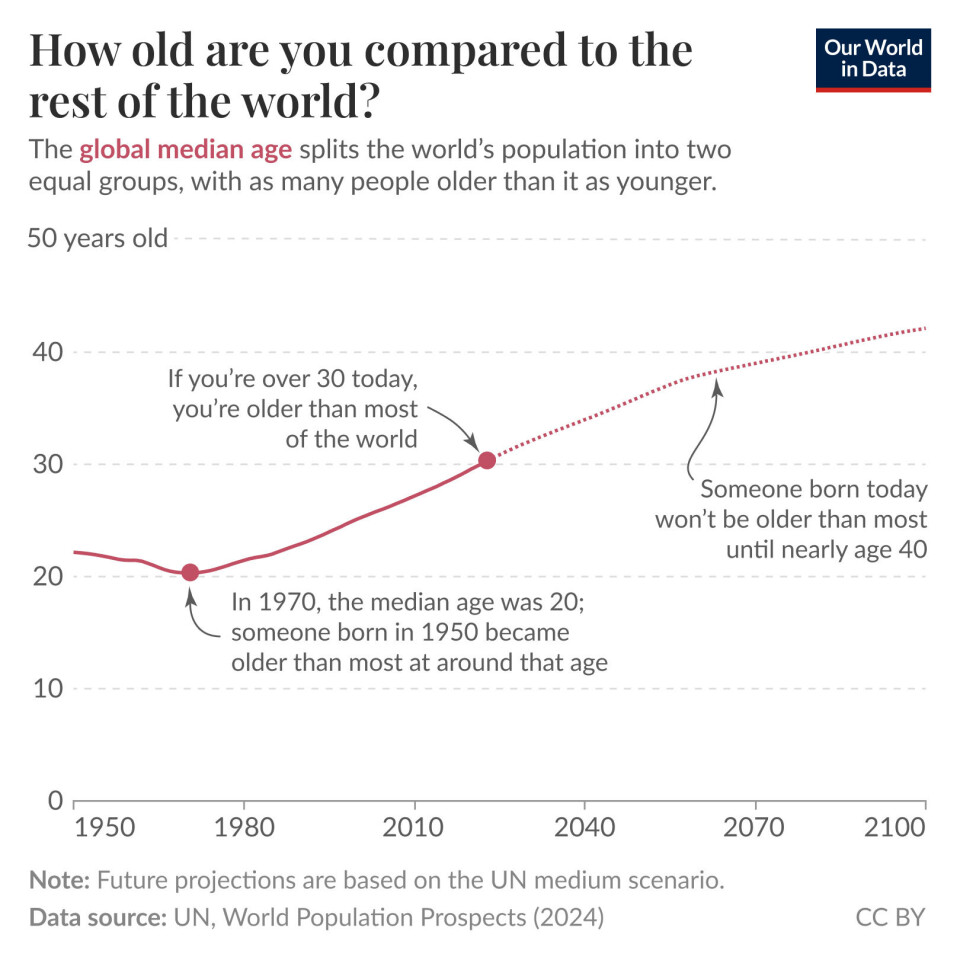This is how old you are compared to everyone else
Age is not just a number.

Are you actually old or young?
That can be hard to answer.
But one thing is certain: You can compare yourself to the rest of the world.
World age: 30 years
Imagine all eight billion people on Earth standing in a single line.
They're sorted by age – from the youngest baby to the oldest great-grandmother.
Now, find the person right in the middle.
"Here we find what's called the median age," says Øystein Kravdal.
He is a demographer who studies populations.

The median age is 30, according to the website Our World in Data.
"That means that half of the world's population is younger than 30, and half is older," says Kravdal.
So, if you’re under 30, you’re younger than most people. If you’re over 30, you’re older than most.
How many vaccines?
'Age is just a number,' people say.
But knowing people’s ages helps researchers plan better.
"It's interesting to see how many people in the population are children," says Kravdal.
That gives us a clear idea of how many teachers and vaccines will need to be provided.
"We can also find out how many people are old enough that they’ve stopped working," he says.
Older adults often need support to get by. That means we should have enough healthcare workers ready to help.
Collecting numbers from around the world
"How do researchers know how young or old people are?"
"Most countries carry out population censuses," says Kravdal.
That’s when the authorities count how many people live there – and how old they are.
"It's not entirely accurate, since some people don't get counted and others report the wrong age," says Kravdal.
Many countries register information about the people who live there.

These records note when someone is born, dies, or moves.
"There may be small errors here too, but the numbers are fairly reliable," says Kravdal.
Most viewed
In the end, it all comes down to collecting good-quality data from every country in the world.
Fewer births and people are living longer
The median age changes over time.
In 1970, 55 years ago, it was only 20 years.
Researchers expect the median age will keep rising.

"That's because fewer children are being born and people are living longer," says Kravdal.
For now, though, the global population is still relatively young. You can see the median age for different countries here.
———
Translated by Alette Bjordal Gjellesvik
Read the Norwegian version of this article on ung.forskning.no
Related content:

Subscribe to our newsletter
The latest news from Science Norway, sent twice a week and completely free.


























































